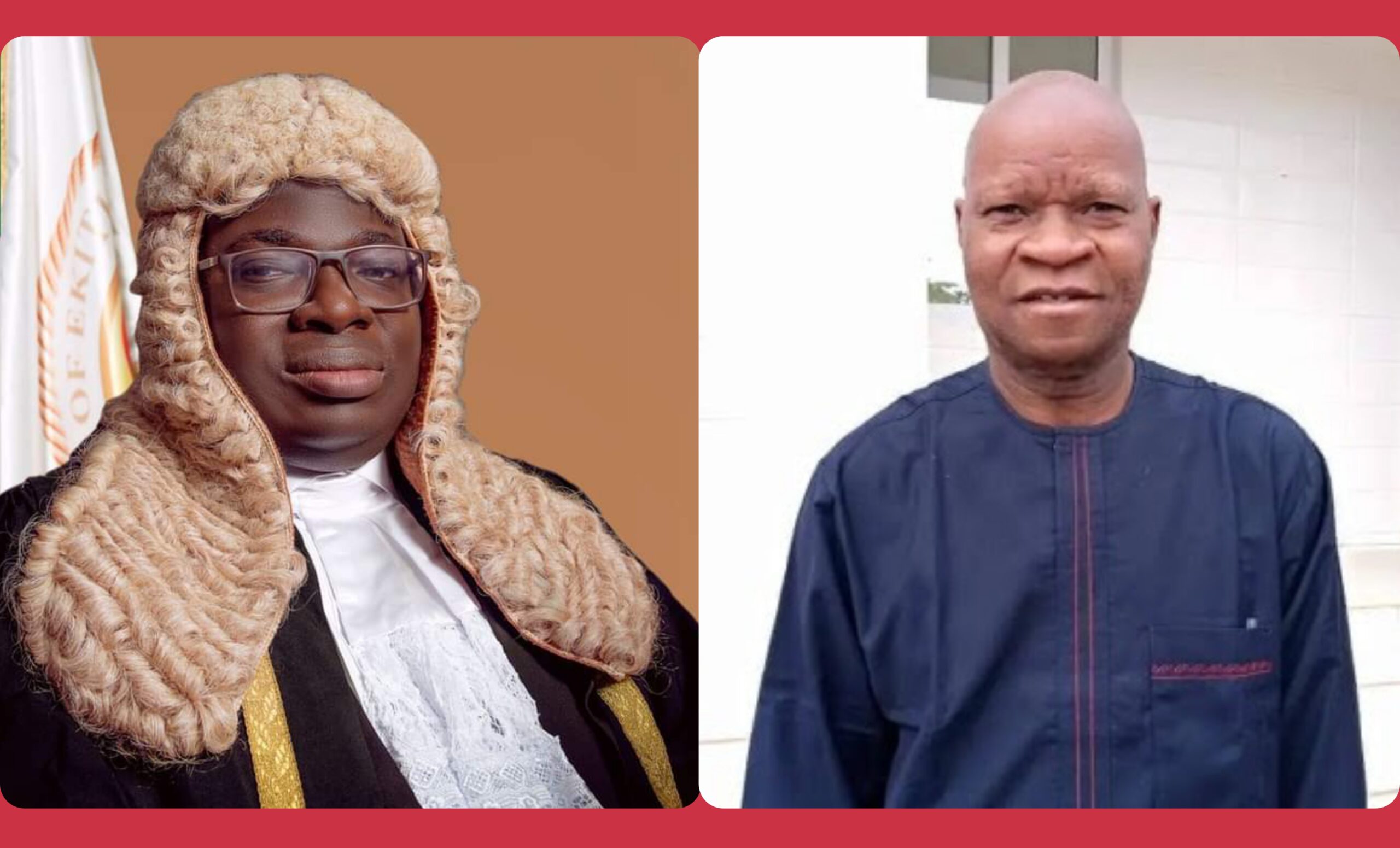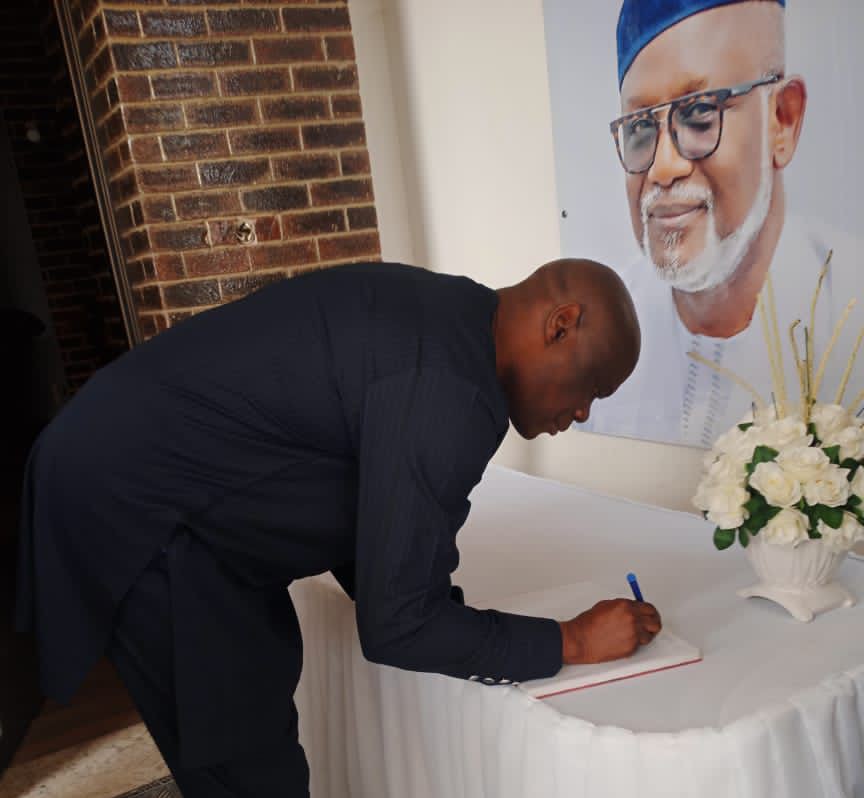
By Comrade Gbenga Olowoyo JP
True leaders know that leadership is not about asserting power over others, but about inspiring and empowering them – LAO TZU
In Nigeria today, to survive is no more a right as a bonafide Nigerian but a process that requires painful strain, extra efforts and persistent struggle because of multifarious economic challenges necessitated by Nigeria economic meltdown and fuel subsidy removal by the present Bola Ahmed Tinubu administration.
As a worker, be it in Public or Private sector environment , the problems are the same because they both patronise the same market where prices of essentials and food stuffs have skyrocketed beyond the reach of the haves and the haves not.
It is very unfortunate that the present predicament that workers find themselves in the present day harsh economy, has not attracted any pity and passion from our political leaders , who by all standards and responsibilities, they are supposed to provide an economic template that will bring succour and happiness to hapless Nigerian workers.
It is no more news that shortly after the removal of oil subsidy which culminated into turbulent and serious economic challenges , President of the Federal Republic of Nigeria Ahmed Bola Tinubu promised economic prosperity for Nigerians but the reverse is the case with the burden of multidimensional taxes, trial and error economic and public policy decisions.
The recent demand for New national minimum wage for both public and private sector workers in Nigeria which ordinarily is a product of Act of parliament , ought not to have been characterized with stress and struggle because the law says that ” review of minimum wage in Nigeria shall be done in every five years, whereas , the review of the present minimum wage of (N30,000) thirty thousand naira have been due since April 2024 but Federal Government was abinitio indifferent.

History of wage employment
It is very essential to refresh our memory on the impact of industrial revolution, which erupted in Great Britain in 1740s to 1860s and resulted into emergent of wage employment because of various technological, industrial and mechanical developments that required the services of workers
The history of industrial revolution across the world was characterized with different stages of development but the overall effect was that it brought about unprecedented economic prosperity, rural to urban migration and wage employment.
Wage employment in Nigeria
The wage employment concept started in Nigeria on the 20th July, 1795 upon the arrival Mungo park with British colonialists, then , they required the services of unskilled labourers
This will quickly remind us of the impact of Royal Niger company and it metamorphosed the industrial and technological transformation in the Nigeria economic landscape.

Synopsis of minimum wage in Nigeria
The history of National minimum wage in Nigeria from time immemorial was characterised with crisis, workers’ protests agitations and indefinite strike actions.
It is on record that Nigerian workers have never, in history , get any increase in wage on a platter of gold. Rather, it has all been through agitations, confrontations with the powers that be and government of the day , which is not the best for the betterment of humanity or better put it is inhumanity to man.
It is paradoxical to note that , the political office holders have always enjoyed fat salaries and allowances without negotiation nor fierce agitation, the workers in history have always being at the very lower ladder of poor salary arrangement and structure.
Prior to year 1978, when the present organised labour structure was put in place in the name of the NLC, and Comrade Hassan Sunmonu was the first president of the Congress, there was no known notable structured minimum wage as we have today because we were coming from enslaved mentality , bequeathed to the Nigerian workers by the colonialists; thank God for the progenitor and mother of all unions in Nigeria, the Nigeria Civil Service Union which was founded in 19th August, 1912 to provide a good template for the negotiation of workers welfare which further resulted in the emergent of other Trade Unions in Nigeria
As a matter of fact , there was the popular Udoji pay package of 1975, which was not subjected to negotiation process as we had in recent past and even presently ; to arrive at a particular figure. The Udoji package came as a result of the oil boom and it was a wage award approved by General Yakubu Gowon, the then military Head of State.
The emergent of democratic governance in 1979, witnessed a pay rise for political leaders, the then President of Nigeria Labour Congress Comrade Hassan Sunmonu began mobilization of the labour force for a new minimum wage agitation.
Labour, under Hassan Sunmonu leadership demanded for a N300 per month minimum wage in 1981. The result of this was a major strike, which culminated in President Shehu Shagari and the Hassan Sunmonu-led executive agreeing to a N125 per month pay package.

To show the seriousness at which the then government attached to labour and the issue of minimum wage, the Vice President, now late Chief Alex Ekwueme , led the negotiation on behalf of the Federal Government, with the now late Senate President Dr Joseph Wayas, and Speaker of the House of Representatives, Edwin Ume-Ezeoke.
Also, another Minimum wage In 1989/90, negotiation came up to demand for an improve wage. Late Pascal Bafyau was the President of NLC. Comrade Adams Oshiomhole, who later took over from Bafyau, led the negotiation. He was the Deputy President of NLC at that time and resulted in N250 national minimum wage.
During the military regime of General Abdulsalami Abubakar, Nigerian workers demanded for another increase in wages, and there was negotiation against this demand in 1989 to 1990. The wage was successfully increased to N3,000. However, by this time, the military government had banned and disbanded the NLC. So, a committee of industrial unions, led by Sylvester Ejiofor, led the negotiation.
Thereafter, when President Olusegun Obasanjo, assumed mantle of Nigeria governance, the organised labour under the Nigeria Labour Congress (NLC) under Comrade Adams Oshiomhole. There was a strong agitation for a new wage and there was negotiation between 2000 and 2001. The demand of N5,500 for state workers and demand of N7,500 for the federal workers and oil-producing states workers were approved.
With the evolutionary trends in industrial relations best practices, Nigeria government adopted collective bargaining norms that the following year (2002) there would be a 15 per cent increase across board, and a 25 per cent increase in 2003, these encouraging provisions were not faithfully followed.

However, a new twist of wage increase of N18,000 minimum wage was achieved in 2010 through a standardized well negotiated tripartite structure under President Goodluck Ebele Jonathan, signed into law by the National Assembly, and with a clear provisions that there will be constant review of the national minimum wage every five years.
In 2015. It was negotiated under former NLC President, Comrade Abdulwahed Omar.
The clear cut provisions that could have mitigated and nip in the bud any crisis was not adhered to under President Muhammadu Buhari . This ignited agitations from organized Labour for three years. Ther Dr government was fought to a dead end before it inaugurated the Tripartite Committee on the National Minimum Wage led by Ms Ama Pepple, a former head of the civil service of the federation, to negotiate a desirable wage for Nigeria workers.
After agitations, counter agitations, accusations, stress , lobby and coordinated alliances with civil society organisations the agitations led to strike actions and threats of indefinite nationwide strike under Comrade Ayuba Wabba; eventually, the President of the Federal Republic of Nigeria, Muhammadu Buhari approved N30, 000 new national minimum wage for Nigerian workers which took effect in April 2019.

Chronicles of 2024 New National minimum wage negotiation and its intricacies
The current New minimum wage negotiation is not different from the past experiences because of Government lackadaisical attitude to workers interest and salary increase
The tripartite committee which was inaugurated on the 30th January, 2024 swung into actions with Public hearing in all the six geo political zones of the country, it is expected that government should have seen the sincerity and feelings of all Nigerian workers through the Public hearing exercises.
Several meetings have taken place so far with adjournments and furry from the side of Organised Labour
It is on record that the Organised Labour have taken the minimum wage negotiations seriously, hence, . ultimatum of May 31st 2024 as a day of mass movement if National minimum wage negotiation issue is not resolved.
This is sequel to the perceived postures of the Federal Government due to various meetings on minimum wage committee and labour unions in Abuja on May 15 and 21, 2024.
The Federal Government proposed a wage increase from ₦35,000 to ₦48,000 per month at the first meeting. The organised private sector (OPS) settled for ₦54,000 while labour unions maintained their stance of ₦615,000 to cope with the high cost of living.
During the second meeting on May 21, 2024, the federal government and the OPS maintained ₦54,000 because the unbelievable claim that government is short of funds. After few-minutes of break, government and private sector proposed the sum of ₦57,000. The final proposal from labour was ₦497,000. The meeting was thereafter adjourned till Tuesday, May 28, 2024.
It is unequivocal on the part of both NLC and TUC that the newly proposed amount of N57,000 from Government side will do nothing to help workers survive the current economic conditions, considering the electricity tariff hike, housing rates and inflation , whereas Government side must passionately consider Labour demand of now (N497,000.) Four hundred and ninety seven thousand naira only as New National minimum wage
The leadership of both Labour centres NLC Comrade Joe Ajaero and TUC Comrade Festus Osifo should be commended for providing leadership with sense of direction as well as other statutory organs of both NLC and TUC i.e NAC, CWC and NEC of the two centres with their strong alliances and objectives; this is a collective fight !!!

Honestly speaking, “People United can never be defeated”
Flowing from the above standpoint, Mr President of the Federal Republic of Nigeria , Bola Ahmed Tinubu should be reminded of his promise when he hosted progressive Governors’ forum sometimes in 2023 at the State House Abuja.
He said “the present N30,000 National Minimum Wage will be reviewed, so that it would be in tandem with current global realities, because security and improved livelihood for Nigerians remain priorities of his government, with more people-focused economic policies., President Tinubu further buttressed that his promise that the national and sub-national governments would work together on the minimum wage, which already requires “soul searching.”

President Tinubu urged the governors to seize the opportunity of being chosen among millions of citizens in their states to make a difference in the lives of people, adding that he would work for the benefit of Nigerians.”
In the same vein , he made an avowed promise during 2024 workers’ Day that “Indeed, this government is open to the committee’s suggestion of not just a minimum wage but a living wage. Great Nigerian Workers, we cannot achieve a just and equitable society that caters to the needs of every member, including the strong and the weak, without fostering peace and unity.
“Our shared vision for national growth and development can only be realised in an atmosphere of industrial harmony and peaceful coexistence in every segment of our country. The dividends we have promised the nation, and which you work tirelessly to ensure, can only be achieved when we all unite for progress
Mr President of Nigeria should walk the talk, and move from rhetoric of promises and idealistic pronouncements to the practicality of sustainable economic policy development that are people oriented not coastal road that will cost Federal Government N15 Trillion Naira, for the posterity, peace and betterment of Nigerian workers and multitude of their dependants.
Drawing from the above admonition to Mr President of the country, the Nigeria Governors’ Forum (NGF) should be reminded that any attempt to scuttle the New minimum wage ( as being speculated of their surreptitious move to frustrate Organised Labour efforts )will be resisted through concerted efforts of Organised Labour, Civil Society Organisations and their dependants because Nigeria belongs to all of us.
Edo State Government example
I want to specially commend the Executive Governor of Edo state , His Excellency Godwin Obadeki for fulfilling his promise of payment of N70,000 as minimum wage to Edo State Public servants
It is gratifying to note that Edo state has started the payment of N70,000 consequence upon his promise during commissioning programme Labour House in Benin city.
This was affirmed in a press statement issued on Sunday 26th May, 2024, by the State Commissioner for Communication and Orientation, Chris Nehikhare, which stated that the payment of the N70,000 minimum wage to the workers further demonstrates the commitment of the Obaseki-led administration to the welfare of Edo workers.
“The Edo State Government has paid the May salaries of workers in the state, reflecting the implementation of the N70,000 new minimum wage, the statement added
“This is in fulfillment of the promise made by Governor Godwin Obaseki to increase the minimum wage from N40,000 to N70,000 beginning this May, as part of efforts to cushion the impacts of the harsh economy occasioned by fuel subsidy removal and other economic decisions by the Federal Government.
To this end, the proposed New National Minimum wage Act should contain appropriate sections that will prescribe penalties against any defaulters, be it: Federal, State and Local Governments as well as Organised private sector (OPS) who are equally employer of Labour , also, a strong thought should be spared for the pensioners under this new minimum wage negotiations arrangement.
A word is enough for the wise…
The struggle continues!!!
* Comrade Gbenga Olowoyo fcia fimpa JP, is a trade unionist and industrial relations practitioner gbengaolowoyo3@gmail.com
08033570338





